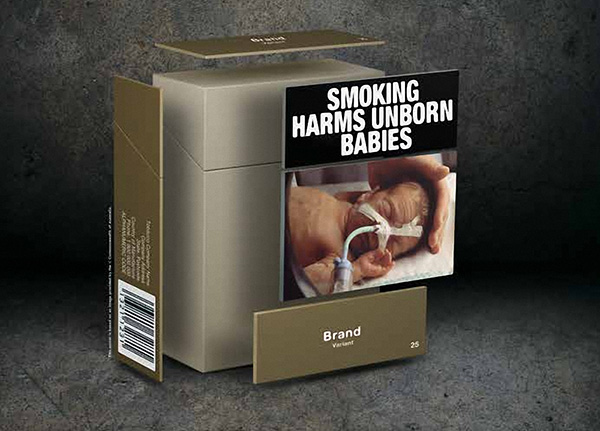Plain-packaging push for tobacco products
By Wang Xiaodong (China Daily) Updated: 2016-06-02 07:45
 |
|
An example of plain packaging. WHO/WEI XIAOHAO/CHINA DAILY |
Stringent regulations
Beijing's anti-smoking regulations, the toughest among the 18 Chinese cities in which controls have been implemented, ban smoking in all indoor public areas and workplaces, and in a number of outdoor spaces, such as areas near children's hospitals.
Violators face fines of up to 200 yuan ($30), 20 times higher than those levied under a less-stringent regulation adopted in 1996.
Fang Laiying, director of the Beijing Municipal Commission of Health and Family Planning, said smoking in some public places, such as restaurants, has decreased greatly over the past year. Moreover, the city's health authorities have imposed fines totaling more than 1 million yuan on premises and individuals who violated the regulations.
Meanwhile, a recent survey found more than 46 percent of smokers plan to quit, compared with less than 12 percent before the capital implemented the smoking ban, Fang said.
Mao Qun'an, a spokesman for the National Health and Family Planning Commission, the nation's top health authority, said the measures have won great public support, produced satisfactory results in terms of tobacco control and paved the way for national tobacco-control regulations.
Other important steps in the past year include a rise in tobacco tax, and therefore retail prices, announced by the Ministry of Finance in May last year, which has resulted in a reduction in overall tobacco consumption. In addition, stronger restrictions on tobacco advertising came into effect in September.
Global measures
Plain packaging refers to "measures to restrict or prohibit the use of logos, colors, brand images or promotional information on packaging other than brand names and product names displayed in a standard color and font style", according to WHO.
In December 2012, Australia became the first country to fully implement plain packaging, while France and the United Kingdom began the process on May 20. New Zealand and Norway have also announced that they will remove branding from cigarette packs. Ireland is also preparing to introduce the measure, while other countries are exploring the option, WHO said.
"Plain packaging is fast becoming a global trend," Schwartlander said.
"There is an opportunity for China to take a step in the right direction toward plain packaging with the adoption of a strong, comprehensive national smoke-free law, including the introduction of graphic health warnings."
The National Health and Family Planning Commission proposed a national tobacco control regulation in 2014, which was submitted to the State Council for approval in the same year.
"The legislation is at the end stage and may be completed before the end of the year," said Mao, the commission's spokesman, at an international conference in Beijing on May 30 to mark World No Tobacco Day.
Wu Yiqun, who participated in the revision process, said the latest draft has not yet been released to the public, but it is more lenient than the measures adopted in Beijing, and plain packaging or graphics warnings were not mentioned in the paper.
- Beijing urges probe in attack on peacekeepers
- Xi calls for restraint, dialogue
- Plain-packaging push for tobacco products
- Crowds take shine off Disneyland desires
- Mitsubishi settles with Chinese slave laborers
- Premier Li calls for passion in S&T innovation
- China to check halal food
- Action plan targets soil pollution
- Sexually abusive guardians must lose rights, top court reiterates
- Xi, Li see science as key to future







